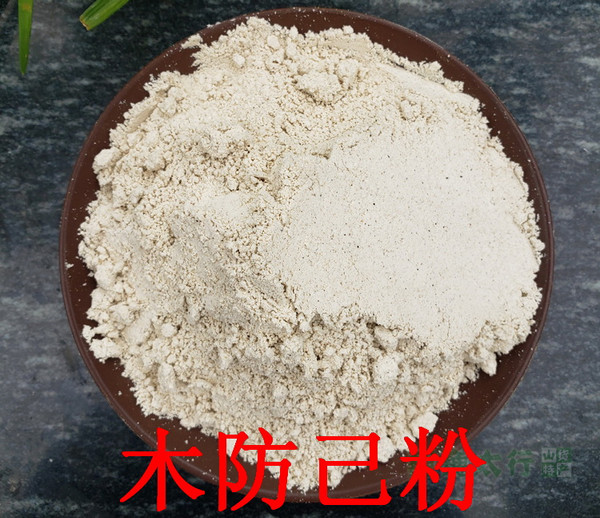Product Overview
Parts used: Dried root
TCM category: Herbs that clear Heat and dry Dampness
TCM nature: Cold
TCM taste(s): Bitter
Meridian affinity: Bladder Lung
Scientific name: Stephania tetrandra
Other names: Fourstamen Stephania
Use of stephania roots (Fang Ji) in TCM
Please note that you should never self-prescribe TCM ingredients. A TCM ingredient is almost never eaten on its own but as part of a formula containing several ingredients that act together. Please consult a professional TCM practitionner, they will be best able to guide you.
Preparation: Remove impurities, soak in water for a little while, wash, cut in thick pieces and dry
Dosage: 3 - 9 grams
Main actions according to TCM*: Encourages urination. Allays pain and dispels Wind-Damp painful obstruction (Bi Pain).
Primary conditions or symptoms for which stephania roots may be prescribed by TCM doctors*: Edema Oliguria Eczema Rheumatoid arthritis Hypertension
Contraindications*: This herb should not be used by those with chronic Dampness nor by those with Yin Deficiency.
Common TCM formulas in which stephania roots are used*:
For Wind-Damp obstruction, stiffness, pain of the limbs and joints combine stephania roots with flowering quince (Mu Gua), clematis roots (Wei Ling Xian) and dong quai (Dang Gui).
For edema with weakness combine stephania roots with milkvetch roots (Huang Qi) and atractylodes rhizomes (Bai Shu).
Key TCM concepts behind stephania roots (Fang Ji)'s properties
In Traditional Chinese Medicine (TCM), stephania roots are plants that belong to the 'Herbs that clear Heat and dry Dampness' category. Herbs in this category are used to clear inflammatory and infectious conditions, referred to as 'Internal Heat' in TCM. This is why most of the herbs in this category will have both antibacterial and antiviral properties. In TCM one has too much 'Heat' in their body as a result of a deficiency of 'Yin' (which is Cold in nature, see our explanation on Yin and Yang) or, more commonly, an excess of Yang (Hot in nature). Herbs that clear Heat and dry Dampness treat the latter while, at the same time, relieving the body of excess Dampness. As such they tend to be Cold or Neutral in nature.
As suggested by its category stephania roots are plants that are Cold in nature. This means that stephania roots typically help people who have too much "heat" in their body. Balance between Yin and Yang is a key health concept in TCM. Those who have too much heat in their body are said to either have a Yang excess (because Yang is Hot in nature) or a Yin deficiency (Yin is Cold in Nature). Depending on your condition stephania roots can help restore a harmonious balance between Yin and Yang.
Stephania roots also taste Bitter. The so-called "five elements" theory in Chinese Medicine states that the taste of TCM ingredients is a key determinant of their action in the body. Bitter ingredients like stephania roots tend to have a cleansing action on the body by clearing heat, drying dampness and promoting elimination via urination or bowel movements.
The tastes of ingredients in TCM also determine what organs and meridians they target. As such stephania roots are thought to target the Bladder and the Lung. In TCM the impure water collected by the Kidneys that cannot be used by the body is sent to the Bladder for storage and excretion as urine. In addition to performing respiration, the Lungs are thought to be a key part of the production chain for Qi and the body fluids that nourish the body.






